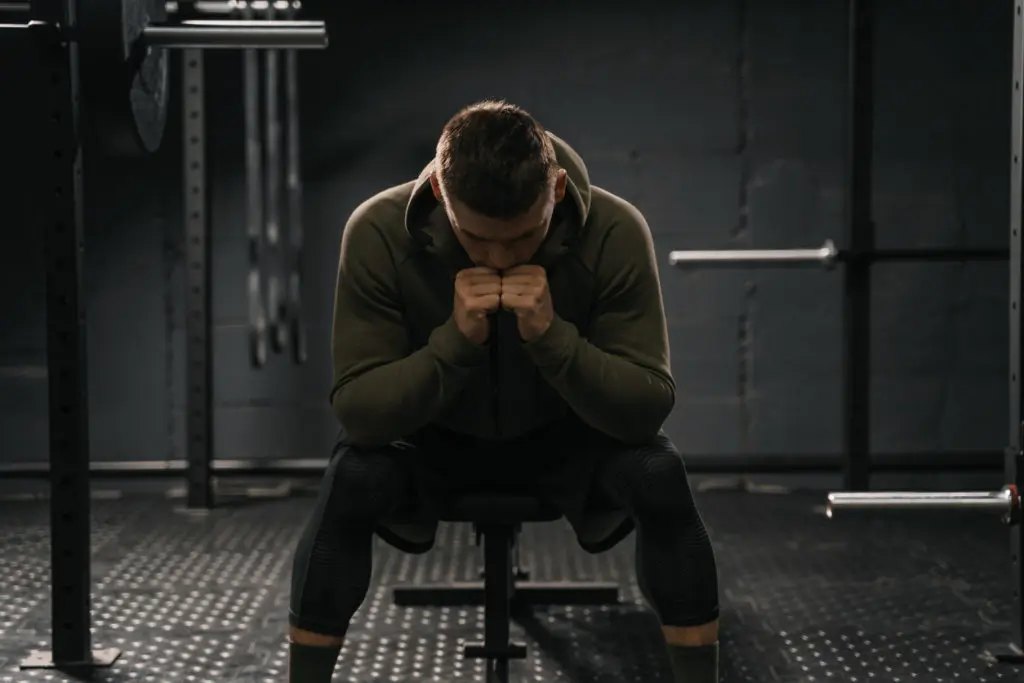Hydration is a fundamental yet often overlooked aspect of fitness and overall health. Proper hydration is crucial for maintaining optimal bodily functions, including muscle performance, endurance, and recovery. This comprehensive article delves into the importance of hydration for workout performance, exploring the physiological effects, signs of dehydration, the role of electrolytes, strategies for staying hydrated, and the impact on various types of exercise.
The Physiology of Hydration
1. Water and Body Composition
The human body is composed of approximately 60% water, with variations depending on age, sex, and body composition. Water is a critical component of every cell, tissue, and organ, playing a vital role in maintaining homeostasis and enabling physiological processes. It is involved in nutrient transport, waste removal, temperature regulation, and cellular functions.
2. Water’s Role in Muscle Function
Muscle tissue itself is about 75% water. Proper hydration is essential for muscle contraction and function. Water facilitates the transmission of electrical signals that trigger muscle contractions and helps maintain the balance of electrolytes, which are crucial for nerve function and muscle contractions. Dehydration can lead to muscle cramps, reduced strength, and impaired performance.
3. Thermoregulation
During exercise, the body generates heat. To prevent overheating, the body relies on sweating as a cooling mechanism. Sweat is primarily composed of water, and its evaporation from the skin surface helps dissipate heat. Adequate hydration ensures that the body can produce enough sweat to regulate temperature effectively. Without sufficient water intake, the body’s ability to cool itself diminishes, leading to an increased risk of heat-related illnesses such as heat exhaustion or heat stroke.
The Impact of Dehydration on Performance
1. Reduced Endurance and Stamina
Dehydration has a significant impact on aerobic performance. As the body loses water, blood volume decreases, leading to reduced cardiac output and oxygen delivery to muscles. This results in faster onset of fatigue and decreased endurance. Studies have shown that even a 2% loss in body weight due to dehydration can lead to noticeable declines in physical performance.
2. Impaired Strength and Power
Strength and power activities are also negatively affected by dehydration. Water is essential for maintaining the viscosity of blood and the efficient transport of nutrients and oxygen to muscles. Dehydrated muscles are less efficient at generating force, leading to decreased strength and power output. Athletes may experience reduced ability to lift weights, perform explosive movements, or sustain high-intensity efforts.
3. Decreased Mental Performance
Hydration status also affects cognitive function and mental clarity. Dehydration can impair concentration, reaction time, and decision-making skills, all of which are crucial during physical activity. For athletes, this can mean the difference between executing a skill correctly or making a costly error during competition.
4. Delayed Recovery
Hydration plays a critical role in recovery from exercise. Adequate fluid intake helps flush out metabolic waste products generated during intense physical activity. It also supports the repair and rebuilding of muscle tissues. Dehydration can slow down recovery processes, leading to prolonged muscle soreness and a higher risk of injuries.
Recognizing Signs of Dehydration
1. Thirst
Thirst is the body’s natural mechanism for signaling the need for water intake. However, relying solely on thirst can be insufficient, as the sensation may not always accurately reflect the body’s hydration status. By the time you feel thirsty, you may already be slightly dehydrated.
2. Urine Color
Monitoring urine color is a simple and effective way to gauge hydration status. Light, pale yellow urine typically indicates adequate hydration, while dark yellow or amber urine suggests dehydration. Clear urine may indicate overhydration, particularly if it occurs frequently.
3. Physical Symptoms
Other signs of dehydration include dry mouth, fatigue, dizziness, headache, and reduced urine output. During exercise, muscle cramps, excessive sweating, and an elevated heart rate can also indicate dehydration.
The Role of Electrolytes
1. What Are Electrolytes?
Electrolytes are minerals that carry an electric charge and are essential for various physiological functions. The primary electrolytes include sodium, potassium, calcium, magnesium, chloride, and phosphate. They play critical roles in maintaining fluid balance, transmitting nerve impulses, and enabling muscle contractions.
2. Sodium and Fluid Balance
Sodium is the most abundant electrolyte in extracellular fluid and is crucial for maintaining fluid balance and blood volume. It helps regulate blood pressure and supports nerve and muscle function. During exercise, sodium is lost through sweat, and replenishing it is essential to prevent imbalances that can lead to hyponatremia (low blood sodium levels) or dehydration.
3. Potassium and Muscle Function
Potassium is vital for muscle function, including the contraction and relaxation of muscles. It works closely with sodium to maintain cellular fluid balance and supports proper heart and muscle function. Potassium depletion can lead to muscle weakness, cramps, and irregular heart rhythms.
4. Calcium and Magnesium
Calcium and magnesium are essential for muscle contraction and relaxation. Calcium triggers muscle contractions, while magnesium helps relax muscles. Both minerals are involved in energy production and metabolic processes. Ensuring adequate intake of these electrolytes is important for optimal muscle function and overall performance.
5. Electrolyte Imbalances
Electrolyte imbalances can occur due to excessive sweating, inadequate intake, or medical conditions. Symptoms of imbalances include muscle cramps, fatigue, nausea, and irregular heartbeats. For athletes, maintaining proper electrolyte balance is crucial to prevent performance declines and health risks.
Strategies for Staying Hydrated
1. Pre-Hydration
Ensuring proper hydration before exercise is essential for optimal performance. Drink water throughout the day, and aim to consume 500-600 ml (17-20 oz) of water two to three hours before exercising. This helps ensure that you start your workout in a hydrated state.
2. Hydration During Exercise
The amount of fluid needed during exercise varies based on factors such as intensity, duration, temperature, and individual sweat rates. As a general guideline, aim to drink 150-300 ml (5-10 oz) of water every 15-20 minutes during exercise. For prolonged or intense activities lasting more than an hour, consider using sports drinks that contain electrolytes and carbohydrates to maintain energy levels and electrolyte balance.
3. Post-Exercise Hydration
Rehydrating after exercise is crucial for recovery. Drink at least 500-750 ml (17-25 oz) of water for every pound (0.45 kg) of body weight lost during exercise. Consuming fluids with electrolytes and carbohydrates can help replenish lost nutrients and support glycogen restoration in muscles.
4. Monitoring Hydration Status
Regularly monitor your hydration status by paying attention to thirst, urine color, and physical symptoms. Weighing yourself before and after exercise can also help determine fluid loss and guide rehydration efforts.
5. Hydration for Different Conditions
- Hot and Humid Conditions: In hot and humid environments, sweat rates increase, leading to higher fluid and electrolyte losses. Increase your fluid intake and consider using electrolyte supplements or sports drinks to stay hydrated.
- Cold Conditions: In cold weather, the sensation of thirst may be diminished, leading to lower fluid intake. However, dehydration can still occur due to increased respiratory fluid losses. Make a conscious effort to drink water regularly.
- High Altitude: At high altitudes, the body loses more water through respiration, and the risk of dehydration increases. Drink more fluids than usual to compensate for these losses.
Hydration and Different Types of Exercise
1. Endurance Training
Endurance athletes, such as runners, cyclists, and triathletes, are particularly susceptible to dehydration due to prolonged exercise durations and high sweat rates. Maintaining proper hydration is crucial for sustaining energy levels, preventing cramps, and optimizing performance.
2. Strength Training
While strength training sessions are typically shorter than endurance workouts, proper hydration is still essential. Dehydration can impair muscle strength, reduce power output, and hinder recovery. Drink water before, during, and after strength training to support muscle function and growth.
3. High-Intensity Interval Training (HIIT)
HIIT involves short bursts of intense exercise followed by periods of rest or low-intensity activity. The high-intensity nature of HIIT can lead to significant fluid losses through sweat. Hydrate adequately before and after HIIT sessions to maintain performance and recovery.
4. Team Sports
Team sports such as soccer, basketball, and hockey involve continuous movement, high-intensity bursts, and varying environmental conditions. Proper hydration is essential to sustain energy, prevent cramps, and maintain cognitive function. Coaches and trainers should encourage regular hydration breaks.
5. Swimming
Swimmers may not feel as thirsty during workouts due to the cooling effect of water. However, they still lose fluids through sweat and respiration. Ensure proper hydration before and after swimming sessions to prevent dehydration.
6. Yoga and Pilates
Yoga and Pilates may not induce as much sweating as other forms of exercise, but proper hydration is still important for maintaining flexibility, joint lubrication, and muscle function. Drink water before and after sessions to support overall well-being.
The Science of Hydration and Performance
1. Research Findings
Numerous studies have investigated the relationship between hydration and exercise performance. Key findings include:
- Aerobic Performance: Dehydration impairs aerobic performance by reducing blood volume, decreasing cardiac output, and limiting oxygen delivery to muscles. Even mild dehydration can lead to significant declines in endurance.
- Strength and Power: Dehydration reduces muscle strength and power output, likely due to impaired muscle contractility and reduced blood flow. This affects activities requiring maximal force or explosive movements.
- Cognitive Function: Dehydration negatively impacts cognitive function, including concentration, reaction time, and decision-making skills. This is crucial for athletes who need to make quick, strategic decisions during competition.
- Recovery: Proper hydration enhances recovery by facilitating the removal of metabolic waste products, supporting nutrient transport, and aiding muscle repair. Dehydration delays recovery processes and increases the risk of injuries.
2. Practical Applications
Athletes and fitness enthusiasts can apply these findings to optimize their hydration strategies:
- Customized Hydration Plans: Develop personalized hydration plans based on individual sweat rates, exercise intensity, and environmental conditions. This may involve trial and error to determine the most effective fluid intake regimen.
- Hydration Tracking: Use tools such as hydration apps, wearable devices, and urine color charts to monitor hydration status and adjust fluid intake accordingly.
- Education and Awareness: Educate athletes, coaches, and fitness professionals about the importance of hydration and effective strategies for maintaining optimal hydration levels. Encourage a proactive approach to hydration rather than relying solely on thirst cues.
Conclusion
Hydration is a cornerstone of optimal workout performance and overall health. Proper hydration supports muscle function, endurance, strength, cognitive performance, and recovery. By understanding the physiological effects of hydration, recognizing signs of dehydration, and implementing effective hydration strategies, athletes and fitness enthusiasts can enhance their performance and achieve their fitness goals. Prioritize hydration as an integral part of your fitness routine and reap the benefits of improved performance, reduced risk of injuries, and faster recovery.
Recent Advances in Hydration Research
Recent studies have highlighted the role of personalized hydration strategies, emphasizing the importance of tailoring fluid intake to individual needs based on genetic factors and specific biomarkers. Advances in wearable technology now allow for real-time monitoring of hydration levels, providing athletes with immediate feedback to optimize their fluid intake during training and competition.
Innovations in Hydration Products
The market has seen a surge in innovative hydration products, including electrolyte-infused water, hydration tablets, and smart bottles that track fluid consumption. These products aim to enhance convenience and effectiveness, making it easier for individuals to maintain optimal hydration levels throughout the day.
Hydration and Immune Function
Emerging research suggests a link between hydration and immune function, indicating that adequate fluid intake may support the body’s ability to fend off infections. Proper hydration helps maintain mucosal barriers and supports the circulation of immune cells, potentially reducing the risk of illness, especially during intense training periods.















One Comment